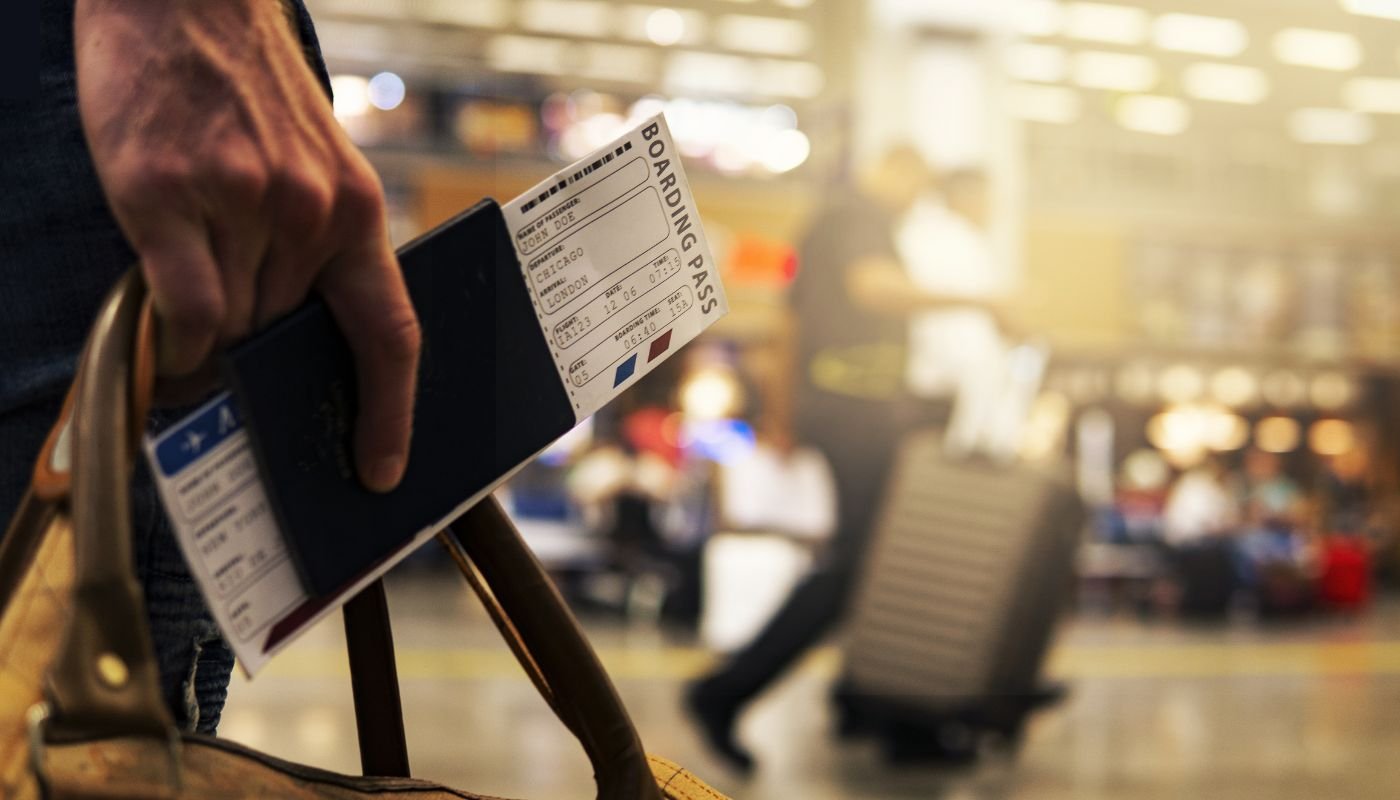Introduction to UK Visit Visas
Getting a valid UK Visit Visa is essential for anyone planning to visit the UK for tourism, business, or simply family/ leisurely purposes. The visit visa is the primary immigration route for non-EEA nationals looking to enter the UK temporarily. Whether you aim to explore famous landmarks, attend business engagements, or spend time with loved ones, the Standard Visit Visa allows you to enter and stay in the UK for up to 6 months all these needs.
Who Needs a UK Visit Visa?
- Non-EEA nationals or those outside Switzerland need to enter the UK temporarily.
- Visitors intending to stay for up to six months.
- Individuals planning for either leisure, business, or other specific activities within the UK.
Applicants must ensure they meet all required criteria and have the necessary documentation to support their visit visa application. This includes showing evidence of funds to cover their stay and intentions to return to their home country after their visit.
Contact Us Today to schedule your appointment and start your application with confidence. Let us help you secure your future in the UK with professional and personalised legal services.
Contact Primus Solicitors for professional, specialist legal advice with your UK Legal query.
What Are the Different Types of Visits Visa?
There a multiple different type of Visit Visa that facilitates a variety of different reasons of the visits, each specifically tailored to different purposes and needs. Understanding these categories can help applicants choose the right visa type and application, and prepare their documentation accordingly.
Standard Visit Visas
Standard Visit Visas are specifically tailored for individuals looking to engage in leisure activities within the United Kingdom. These visas are ideal for visitors who plan to explore famous landmarks, visit family members, or participate in recreational activities. The range of activities covered includes sightseeing, taking holiday breaks, and attending various cultural festivals and events throughout the country.
Business Visit Visas
Business Visitor visas cater more to professionals who need a short-term entry into the UK to conduct business-related activities such as attending important meetings, participating in conferences, or engaging in seminars that can not be done online and as such mandate that you be in the UK physically. It also covers professionals coming to the UK for short-term business appointments or contractual obligations. This visa ensures that professionals can enter the UK with the clear purpose of enhancing business relations or advancing their professional careers without staying in the UK permanently.
Medical Visit Visas
Each of these categories requires specific documentation and adherence to the visa conditions, ensuring that the purpose of the visit is clear and well-documented to avoid complications during the application process.

Eligibility Requirements for a UK Visit Visa
To apply for a UK Visit Visa, applicants must satisfy specific criteria to ensure they are eligible for entry under the standard visitor guidelines. These requirements were designed by Home Office to verify the visitor’s intentions and their ability to support themselves during their stay without accessing public funds.
Key Eligibility & Requirement Criteria
Non-EEA/Swiss Citizenship
- Applicants must be from countries outside the European Economic Area (EEA) and Switzerland.
Proof of Intention to Leave the UK
- Demonstrating a clear and “genuine intent to depart” the UK at the end of the visit is crucial. This can be shown through strong family or financial ties to the applicants country of origin, such as employment, close family, or property.
Evidence of Activities Planned in the UK
- Applicants should provide a detailed plan of their activities. For tourists, this might include travel itineraries; for business visitors, agendas or invitations from UK that have formally asked them to be present in business related activity that is taking place in the UK.
Financial Independence
- Evidence of sufficient funds to cover all expenses during the stay, including accommodation and living costs, without needing to work or access public benefits.
Documents and Evidence Required
Travel Documents
- A valid passport or travel ID is mandatory for the visa application.
Financial Evidence
- Bank statements or sponsor letters demonstrating financial stability.
Accommodation and Travel Details
- Booking confirmations, addresses of stay, or letters from friends or relatives in the UK.
Additional Supporting Documents
- Depending on the visa type, additional documents such as business invitations, details of medical treatment, or proof of study might be required.
Ensuring Compliance with Visa Conditions
Applicants must comply to the conditions of the visa. This includes not overstaying the visa duration, not working or accessing public funds, and leaving the UK at the visa expiration. Non-compliance can lead to complications in any future visa applications and possible bans on entering the UK.
Required Documentation for a UK Visit Visa
Applying for a UK Visit Visa requires applicants to submit several of their important documents that support the application and demonstrate the visitor’s eligibility and intentions. Up-to-date, accurate, and complete documentation is critical to avoid an Home Office time delays or straight refusals.
Documents Applicants Need to Include
Passport and Travel Identification
- A current passport or other valid travel documentation is necessary. It must have at least one blank page for the visa.
Proof of Travel Plans
- Details of the itinerary, including dates of travel, destinations within the UK, and any booked tours or events.
Evidence of Financial Means
- Bank statements from the last few months to show sufficient funds.
- Additional documents might include payslips, proof of income from other sources, or financial support letters if someone else is funding the visit.
Accommodation Details
- Hotel bookings, rental agreements, or a letter from a host in the UK confirming accommodation arrangements.
Employment and Social Ties
- For those employed, a letter from the employer stating the position, the duration of employment, leave approval, and the date of return to work.
- For students, a letter from their institution confirming current enrolment and leave of absence.
Overseas Contact Information
Contact details of someone who can vouch for the applicant’s intentions and ties outside the UK.
Additional Considerations Applicants Should Consider
- All documents must be in English or Welsh, or accompanied by a certified translation.
- Applicants should ensure that copies of all original documents are also provided if the originals are not required to be submitted.

Processing Time for UK Visit Visas
The processing time for UK Visit Visas can vary depending on several factors some of which include the volume of applications received, the specific embassy that is handling the application, and the complexity of the specific application. Understanding these factors that could delay application timelines is important for applicants planning their trip to the UK to account for.
Standard Processing Time
Typically, it takes up to 3 weeks from the date of application to receive a decision on a UK Visit Visa. This standard processing time applies to most applications that are fully complete and do not require additional documentation or a review.
Expedited Processing Options
For those who need to travel to the UK more urgently, there are faster processing services available at an additional cost:
- Priority Visa Service: This service aims to process visas within 5 working days.
- Super Priority Visa Service: Applicants can expect a decision by the end of the next working day after providing their biometric information if they opt for this service.
These expedited services are particularly useful for last-minute travels or urgent business meetings that were not planned well in advance. However, not all visa application centres offer these services, and availability can vary by location as well as the time of the application.
Long-Term Visit Visas and Extended Stays in the UK
For those who need to visit the UK regularly or require longer stays, there are better, longer term options beyond the standard six-month visit visa. The UK offers different long-term visit visas and a specific permit for certain extended stays, with the intent to cater for a more variety of travel needs including frequent business travels, educational commitments, or ongoing medical treatment.
Long-Term Visit Visas
Long-term visit visas are designed for non-EEA nationals from countries like the United States, China, Pakistan, and India, who need to enter the UK multiple times over a longer period. These visas are available in three durations:
- 2-year visit visa
- 5-year visit visa
- 10-year visit visa
Each specific visa allows for multiple entries over the given time period that the visa allows for, but maintains the restriction that no single stay can exceed six months. These type of visas are ideal if you anticipate needing to travel to the UK frequently within a specified timeframe, providing a more convenient and cost-effective alternative to applying for multiple short-term visas.
Biometric Residence Permit (BRP) for Longer Stays
In specific cases when holding a UK visit visa, such as for academic visitors or individuals receiving private medical treatment, a Biometric Residence Permit (BRP) may be necessary. A BRP allows applicants to stay in the UK longer than six months and involves the following:
- Biometric Enrolment: Submission of personal details like fingerprints and a passport sized photo at a valid UKVCAS centre to secure the permit.
- Proof of Financial Support: Evidence must be provided to show sufficient funds for the duration of the stay without recourse to public funds.
The BRP is a critical document for those who have to be in the UK for extended periods for reasons that cannot be covered by standard or long-term visit visas.
What Is a BRP?
The BRP is essential for anyone needing to stay in the UK for longer than six months under specific visa categories. It is a physical document that acts as proof of the holder’s right to stay, work (if applicable), and access public services in the UK. The permit contains biometric information (fingerprints and a photo) and details such as name, date of birth, and immigration status.
BRP Application Process
- Visa Application: You must apply for your visa as usual. If your application is approved and you’re granted a stay of over six months, you’ll be instructed to obtain a BRP.
- Biometric Information: As part of the application process, you’ll need to provide your fingerprints and a digital photo at a visa application centre.
- Collection: Once you arrive in the UK, you must collect your BRP from a designated post office within ten days of your arrival or before your status expires, whichever is later.
What Are the Benefits of BRP’s
- Security: The use of biometric data enhances the security of the immigration process, making it harder for individuals to misuse the system.
- Convenience: The BRP eliminates the need to carry and present multiple documents as it acts as proof of identity, right to study or work, and access to public services.
- Compliance: Holding a BRP ensures that visa holders meet their immigration conditions and helps to monitor their stays efficiently.
The BRP is a critical component for those engaged in long-term activities in the UK, ensuring that their stay is legal, documented, and aligned with UK immigration policies.

How Much are UK Visit Visas
Understanding the visit visa application fees involved in applying for UK Visit Visas is crucial for budgeting and planning your trip. The fees vary depending on the type o visit visa and the length of its validity, and it’s important to consider these costs early in the application process.
Standard Visit Visa Fees (as of April, 10th 2024)
- Short-term (up to 6 months, single or multiple entry): £115
- Longer-term (valid for up to 2 years): £432
- Longer-term (valid for up to 5 years): £771
- Longer-term (valid for up to 10 years): £963
These fees reflect the flexibility and duration of the visa. For instance, while the initial cost of a longer-term visa may be higher, it can offer greater value over time if multiple visits are planned.
Additional Visit Visa Costs
Any additional services may incur extra fees:
- Priority service: Offers faster processing times for an additional fee, ideal for travellers who need their visa urgently.
- Super priority service: Provides even quicker processing times, ensuring that the application is processed within a day or two.
It’s important to note that these priority services might not be available at all visa application centres, and availability can vary depending on the applicant’s location.
Appealing a Rejected UK Visit Visa Application
Having to appeal a refused visit visa can be challenging task to try and tackle alone, but understanding your options is crucial if you face a visa refusal. There are specific steps and considerations to keep in mind to effectively challenge the decision.
Common Reasons for Visa Refusals
| Reason for Visit Visa Refusals | Description |
|---|---|
| Insufficient evidence of ties to home country | Failing to convince the visa officer that you will return home after your visit. |
| Lack of sufficient funds | Not proving that you have enough money to support yourself during your stay without accessing public funds. |
| Incomplete application or missing documents | Submitting an application that is not fully completed or lacks the required documentation. |
Options for Responding to a Visa Refusal
Administrative Review
If you believe there has been an error in the processing of your application, you can request an administrative review. This review is conducted by visa officers who were not involved in the original decision.
Fresh Submission
In many cases, the simplest and fastest way to address a refusal is to reapply with a fresh submission, along with new evidence of key requirements like your “genuine intent to depart”. This allows you to correct any deficiencies in your initial application, such as providing additional documentation or information.
Formal Appeal or Judicial Review
For certain types of visas, an appeal to an immigration tribunal is possible if you believe the decision violates your rights under immigration rules or law. Judicial review is another option if you contend that the decision was unlawful or if you have already appealed to the first tier and upper tribunal and have still been refused.
Preparing for an Appeal
- Gather new evidence: Compile additional documentation that addresses the reasons for the visa denial.
- Legal advice: Instruct one of our immigration specialists at Primus Solicitors to receive expert legal guidance and representation in your case.
- Timelines: Be aware of the time limits for filing appeals or reviews, as missing these deadlines can forfeit your right to challenge the decision.
What to Expect During the Appeal Process
During the appeal process for a UK Visit Visa, the initial step involves a review phase where the authority reassesses the grounds of your appeal based on the new evidence you submit. The time it takes to reach a decision can vary significantly, often taking anywhere from a few weeks to several months, depending on the complexity of your case.
If the appeal is successful, the visa will be granted. However, if the appeal is denied, you have the option to either seek further legal advice from of our Immigration Lawyers at Primus Solicitors for other potential actions or reapply for the visa, ensuring to address the previous reasons for refusal with more evidence to argue your case.
Conclusion
Successfully navigating the UK Visit Visa application process requires careful planning, accurate documentation, and an understanding of the various visa types and their specific requirements. Whether you are applying for a short-term standard visit visa or seeking a long-term visit visa for frequent travel, it’s crucial to ensure that all application details are thoroughly and accurately presented to avoid potential delays or rejections.
Take the Next Step
Ready to explore the United Kingdom or conduct your business activities? Ensure your journey begins smoothly by applying for the appropriate UK Visitor Visa. Whether it’s for tourism, business, or other specific reasons, having the right visa is crucial. Don’t let paperwork and procedures hold you back. For personalised assistance and expert advice on your UK Visitor Visa application, contact us today. Let’s make your next visit to the UK hassle-free and memorable.
Click here to get started or reach out via 0161 222 5860 for more information. At Primus Solicitors, we’re here to help you maximise your visit visa application chances of a successful decision.

